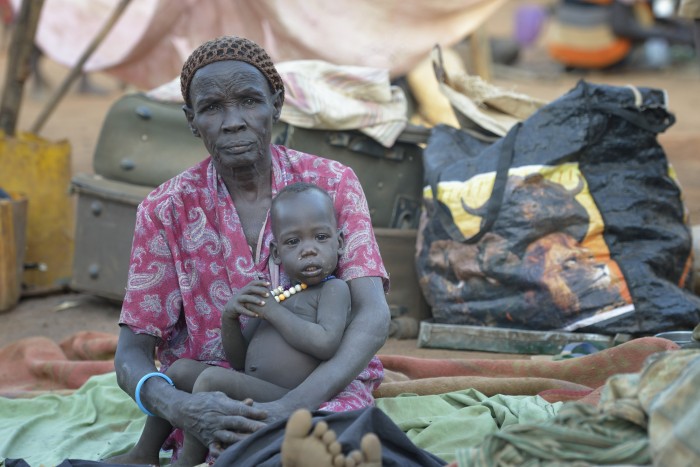
In the months following the December 2013 political conflict, violence raged in some parts of South Sudan and not in others. In the northwestern city of Wau, for example, residents watched from afar, seemingly unconcerned that the politically-manipulated ethnic violence could spread there. And then it did. The victims ran for the city’s churches.
“It wasn’t safe anywhere, but people said that if they were going to be killed, they preferred to be killed in the church because this is the place that Jesus is present. They wanted to die in the church rather than die in their homes,” said Father Germano Bernardo, a Catholic priest in Wau.
Although tensions had been building for months, intense fighting broke out in June 2016 between soldiers of the Sudan People’s Liberation Army, who are mostly members of the dominant Dinka tribe, and a mixture of local opposition groups and members of other ethnic communities. Civilians rushed to the city’s churches and a nearby United Nations base.
More than 400 people were killed and over 120,000 displaced in the initial phase, leaving churches, aid groups and United Nations agencies scrambling to respond. The churches got help from the ACT Alliance and other groups.
ACT members in South Sudan continue to provide food, water, household items, livelihood support and more to tens of thousands of displaced people in South Sudan.
Sporadic fighting around the city continued into this year, pushing more civilians out of their homes. In January, for example, a group of government-affiliated cattle keepers attacked local farmers they believe are aligned with anti-government rebels, and thousands fled neighbouring villages for the safety of Wau’s churches.
In April, after two high-ranking army officers were killed in an ambush nearby, SPLA soldiers and Dinka militia members rampaged through Wau, murdering and robbing non-Dinkas. The United Nations said at least 16 people were killed; other local sources reported double that number. Another 8,000 people were displaced.
Wau has long been a centre of tension between pastoralists and farmers. Violence between the two groups led to the displacement of thousands in 1996, but most returned home within a few days. Yet the current crisis, like many local conflicts in the world’s newest nation, has been exacerbated by the broader political crisis centred in Juba, the nation’s capital.
Catholic leaders played a key role in mediating the 1996 crisis in Wau, led by Bishop Rudolf Deng Majak. Yet Bishop Deng, who died in Germany in March, had been sick for some time and living outside the country. The bishop kept in touch by phone throughout the crisis with Father Bernardo, yet Anne Masterson, the country representative of Norwegian Church Aid, an ACT Alliance member, says things might have been different had he been present.
“He had been the priest of some of these military commanders and knew everyone. So perhaps people felt a bit lost without him. His absence may have allowed some of the clan divisions to be manipulated for political purposes, something the bishop had worked all his life to prevent,” she said.
In Bishop Deng’s absence, the South Sudan Council of Churches mounted a local peace initiative, with strong support from Norwegian Church Aid.
The church council pushed for face-to-face meetings between all parties, finally pulling together a three-day workshop of civil society leaders with government and military officials in December. Those in power made promises, which church leaders say they either didn’t keep, or local officials were replaced by the central government with people who had no interest in honouring the commitments of their predecessors.
According to the Rev Bang Akuei, the regional director for the South Sudan Council of Churches, government officials did try to mitigate the violence by mounting a campaign for civilians to turn in weapons. Yet the same day it convinced a group of cattle keepers to hand over their assault rifles, a large number of cattle were stolen from them. In the wake of the cattle raid, few listened to the government’s appeal to disarm.
And so the displaced wait.
“I’m a university graduate but I’ve been sitting in this camp for almost a year,” said William George, a resident of the cathedral camp. “This morning I didn’t eat anything. Nor did my children. If I had $100, I’d leave for Egypt or somewhere else, anywhere other than here. My house was burned and all my things were taken. There’s no future here because there’s no accountability. They can kill someone and there’s no response, no judgment.”
____
Written by Paul Jeffrey